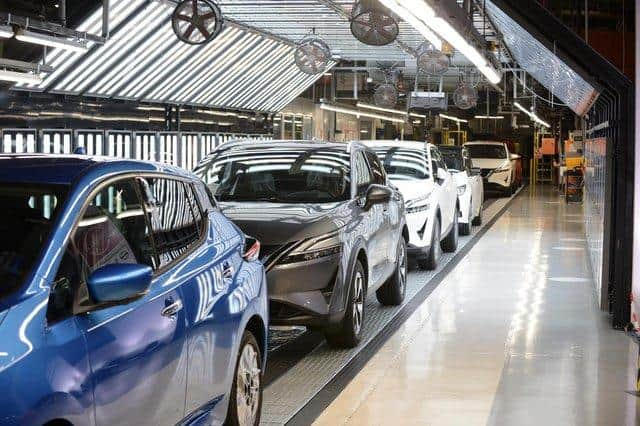Nissan's Sunderland plant still impacted by global semiconductor shortage almost six months later
and live on Freeview channel 276
The firm announced in February that it had started furloughing staff as a result of a shortage of semiconductors used in its cars' electrical systems.
Stoppages were expected to last at least until the end of May with no sign of the global shortage – that was impacting the entire automotive industry - in sight.
Advertisement
Hide AdAdvertisement
Hide AdBut the firm is still been affected by the crisis more than five months later.


A Nissan spokesperson confirmed there were still problems: “The global shortage of semiconductors has affected parts procurement in the auto sector” he said.
"Due to the shortage, Nissan is adjusting production and taking necessary actions to ensure recovery.”
The semiconductor shortage is affecting the car industry nationwide.
Advertisement
Hide AdAdvertisement
Hide AdUK car production fell by 27 per cent in August, the second consecutive month of decline, with 37,246 cars manufactured, according to the latest figures released today by the Society of Motor Manufacturers and Traders (SMMT).
Output was affected by the semiconductor shortage, as well as the timing and length of some manufacturers’ summer factory shutdowns.
While manufacturing for the UK market increased 3.3% in the month, the rise was equivalent to just 255 additional units and exports fell dramatically, down 32.5%, with less than 30,000 cars shipped overseas.
The decline was driven by falling exports to faraway markets including Australia, the US and China. Exports to the EU held up better but were still down nearly five per cent.
Advertisement
Hide AdAdvertisement
Hide AdProduction in the year-to-date remains up but must be set in context against a Covid-hit 2020 as it remains significantly lower than in 2019.
Mike Hawes, SMMT Chief Executive, said, “Another significant decline for UK car production is extremely worrying both for the sector and its many thousands of workers nationwide.
"While not the only factor at play, the impact of the semiconductor shortage on manufacturing cannot be overstated. Carmakers and their suppliers are battling to keep production lines rolling with constraints expected to continue well into 2022 and possibly beyond.”
